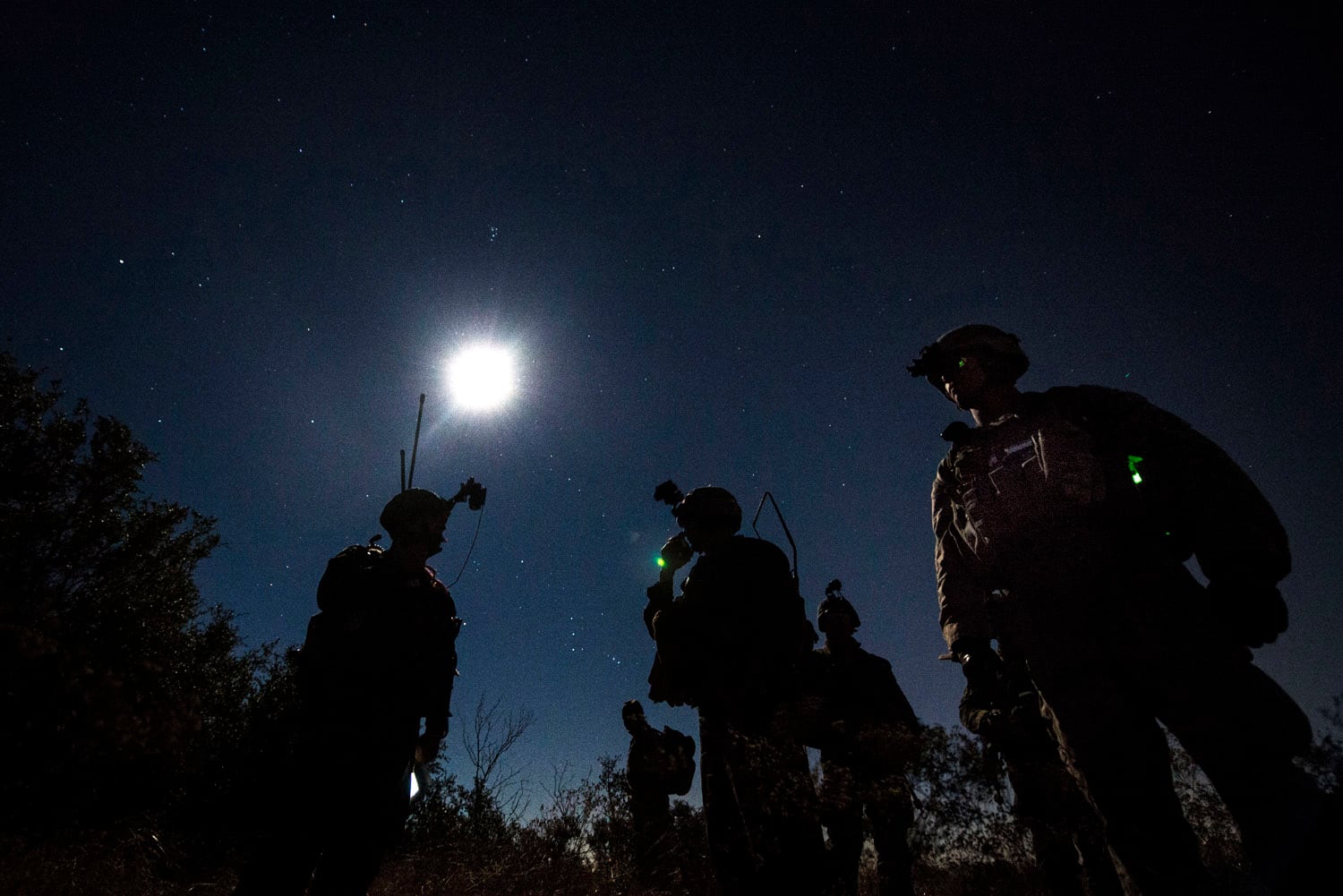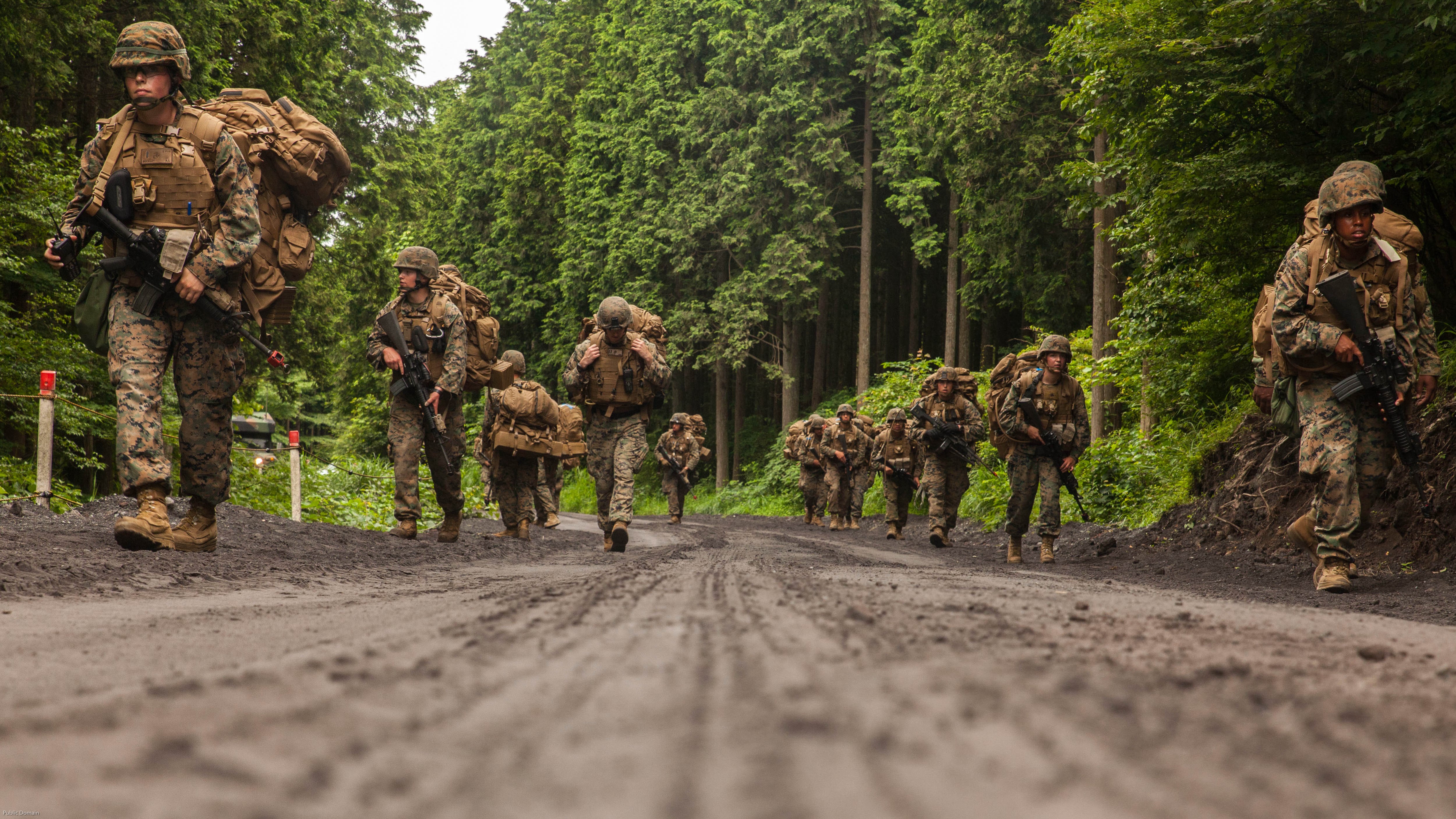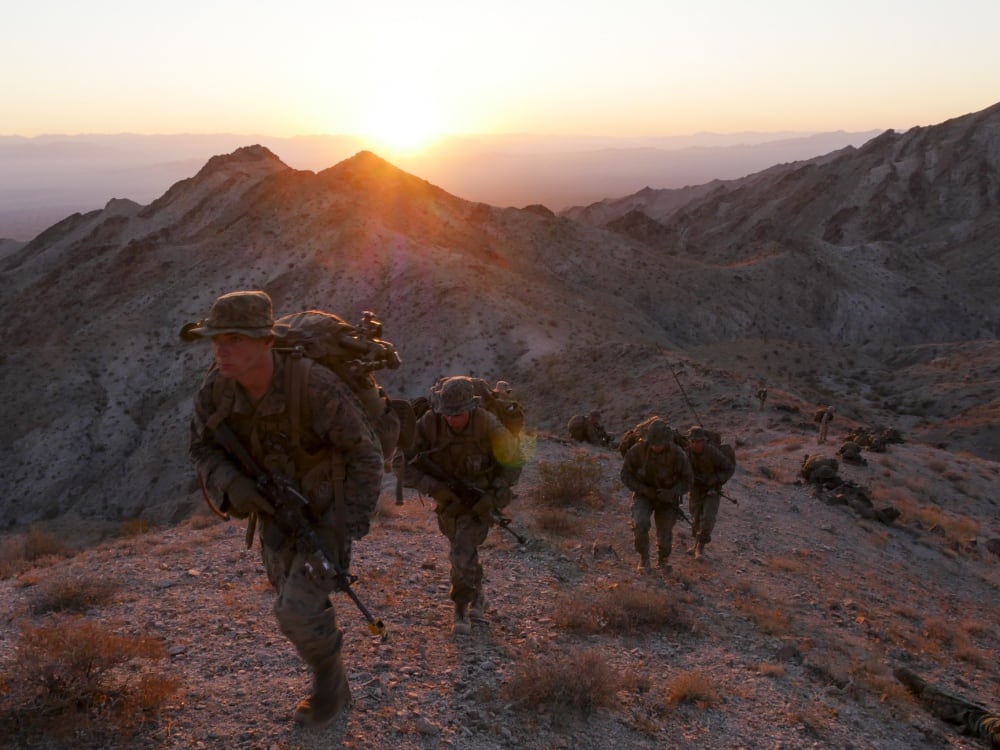In a slight change to the grueling initial stage of the 13-week Infantry Officer Course, Marines will no longer be required to pass the Combat Endurance Test to move on.
The Corps has come under criticism for what some have claimed to be unnecessarily high standards to graduate from the course. To date, only one unnamed female Marine has successfully completed the entire course.
But Marine officials at Training Command contend the changes are not an effort to water down standards.
“Over the past 40 years, the Marine Corps has made multiple modifications to Infantry Officer Course (IOC) program of instruction (POI) to reflect the requirements of the operating environment,” Training Command said in a statement to Marine Corps Times. “The quality of the course remains the same.”
The Combat Endurance Test is an intense physical test that assesses a Marine’s endurance and knowledge gained from The Basic School, and is used as a tool to evaluate a Marine’s potential success in the infantry course.
Previously it was scored as a simple pass or fail, but now the test will no longer be used to weed Marines out. The officers will continue to take a Combat Evaluation Test, but their score will be just one of many components of the course considered for a student’s overall evaluation.
The changes were made in November to better reflect requirements of Marine infantry officers as outlined in the Infantry Training and Readiness Manual and actual operating force requirements, according to officials at Training Command.
“As a result, the Combat Endurance Test (CET) reverted back to its original intent, prior to 2012, as an assessment tool to measure the retention of knowledge, skills and fitness achieved at the Basic Officer Course (BOC).” Training Command said in a statement.

The CET has changed several times; it wasn’t until recently that Marines could washout from failing the course.
The course has not always been a direct indicator of success in the infantry course. In 2014, three female Marines passed the CET, only to be dropped two weeks later in the infantry course.
The three women were dropped after failing to keep up on long marches with what the Marines call an approach-march load, which the Corps defines as “the load necessary for the prosecution of combat operations for extended periods with access to daily resupply.”
The Corps also says the changes were not a result of high attrition rates.
“The average attrition rate for the CET between 2012 and 2017 was less than three percent,” Training Command said. “The majority of the attrition in Infantry Officer Course is associated with a student’s overall performance on tactical movements and leadership.”
The largest spike in attrition from the test occurred in 2015 ― with roughly 6 percent, or 22 Marines washing out of the infantry course for failure to pass the Combat Endurance Test. In 2017, less than 1 percent ― roughly four Marines ― failed the test.
RELATED

The Corps has stringent standards for its officers, especially when it comes to being able to lead forced marches.
According to the infantry manual, a Marine infantry officer must be able to lead a forced march of 15 kilometers with 105 lbs., or approach-march load, in under three hours.
Shawn Snow is the senior reporter for Marine Corps Times and a Marine Corps veteran.





